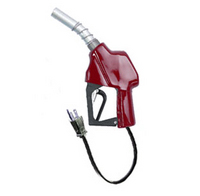Consumers Driving Hybrid Auto Sales to New Heights, According to ABI Research
 |
OYSTER BAY, NY - November 23, 2009: Over the last decade, the benefits (and limitations) of hybrid vehicle ownership have become much better understood, which has led to the rapid broadening of the market. However, the economic meltdown of recent years has hurt the global auto industry, and the consumer hybrid sector has fared no better; sales of consumer hybrid vehicles in the US and Europe will show little growth in 2009.
Nevertheless, several factors will help drive the consumer hybrid vehicle
market in the coming years, according to the ABI Research study “Consumer
Hybrid Vehicles: Series, Parallel, Mild, Full Parallel and Assist Hybrid Cars”
(www.abiresearch.com/research/1003272-Consumer+Hybrid+Vehicles).
These factors include the anticipated post-recession rise in fuel
prices, continuing advances in hybrid powertrains and battery
technology, and the development of indigenous battery suppliers for
US
automakers.
More than 550,000 consumer hybrid vehicles were sold worldwide in 2008, barely a drop in the bucket compared to global consumer car sales exceeding 60 million in 2008. ABI Research foresees the market for consumer hybrids driving ahead during the forecast period, to surpass 1.9 million units by the time 2013 rolls around.
Says Larry Fisher, Research Director of ABI Research’s NextGen research practice, “The continued focus by automotive OEMs on producing fuel-efficient vehicles, backed by government incentives and financial aid, will push the consumer hybrid vehicle market to recover quickly; as a result, it will grow at a CAGR of nearly 30% over the forecast period.”
This growth will take place despite the initial cost premium that hybrids will continue to command over conventional vehicles for the foreseeable future, Mr. Fisher says. “The factors that will affect the premium paid for the hybrid include total cost of ownership, and general perception of hybrid technology. Legislative variables such as vehicle taxes, incentives, and fuel taxes will affect the total cost of ownership directly; automakers’ choices on volume and demand, in turn, will affect initial price.
“Ultimately, perception plays a great role in attracting mainstream buyers to these vehicles.”
This report is published under the Automotive Technology Research Service (www.abiresearch.com/product/service/Automotive_Technology_Research_Service), which is a part of NextGen, the ABI Research emerging technologies research incubator.
ABI Research provides in-depth analysis and quantitative forecasting of trends in global connectivity and other emerging technologies. From offices in North America, Europe and Asia, ABI Research’s worldwide team of experts advise thousands of decision makers through 27 research and advisory services. Est. 1990. For more information visit www.abiresearch.com, or call +1.516.624.2500.


